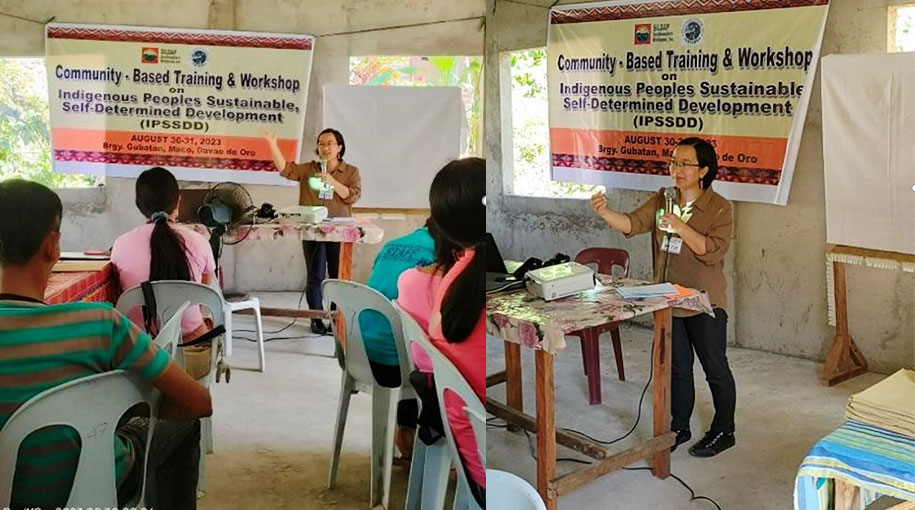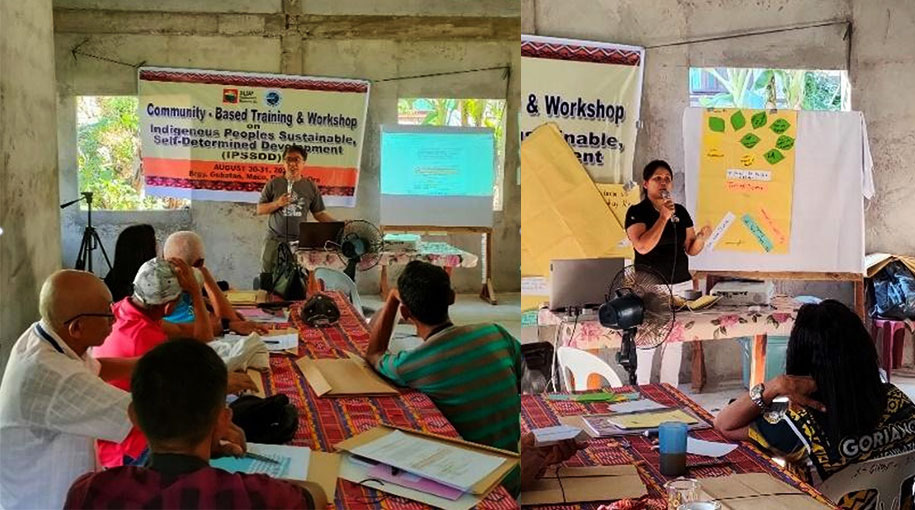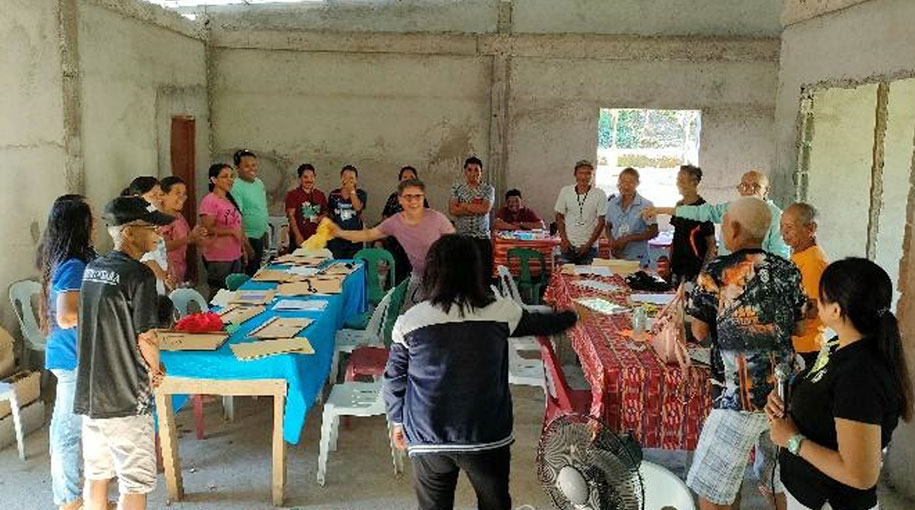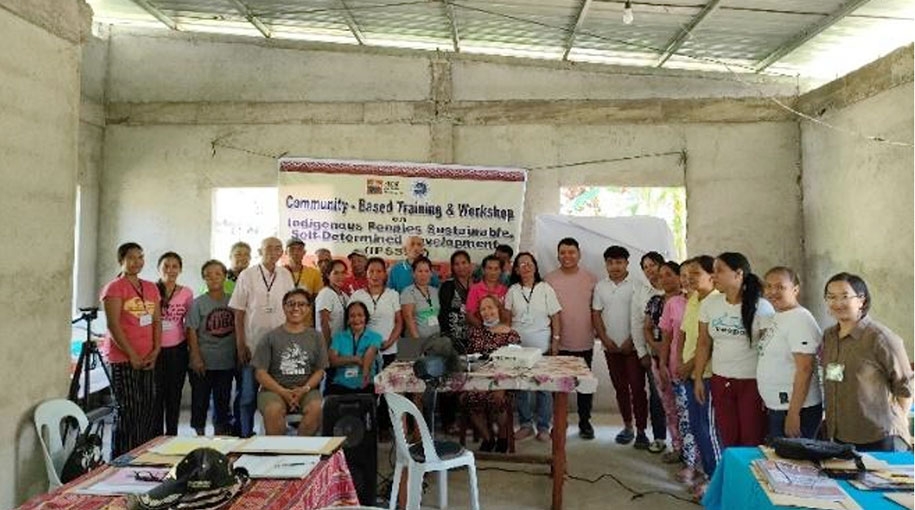“Ang karapatang maging maunlad ay karapatan nating mga katutubo.”
(The right to self-determined development is our right as indigenous peoples.)
Baguio City, Philippines—Maribeth Bugtong-Biano, coordinator of the Elatia Indigenous Peoples Training Institute of Tebtebba, stressed indigenous peoples’ right to self-determined development during the Community-Based Training and Workshop on Indigenous Peoples’ Self-determined and Sustainable Development (IPSSDD) held last August 30 and 31 in Gubatan, Maco, Davao De Oro in the southern Philippines participated in by about thirty (30) Mansaka community members including indigenous elders and leaders and some local government officials..
The primary objective was to orient members of Gubatan’s Mansakas indigenous political structure (IPS), enhancing their understanding of core concepts and principles within various approaches of IPSSDD. The activity aimed to establish connections between global crises and the challenges faced by indigenous peoples, highlight the crucial roles and contributions of indigenous peoples as both local and global actors in addressing contemporary challenges, and provide a foundation for better understanding of and cooperation in community strengthening.

Rande C. Bayate, executive director of SILDAP-Southeastern Mindanao, Inc. based in Tagum City in the southern Philippines, stressed that IPSSDD is a framework, not a project. This framework guides indigenous peoples in deciding the development they want for their communities and sustains their lands, territories, and resources. He underscored that the human rights-based approach as one of the IPSSDD approaches, serves as the foundation of IPSSDD especially for the indigenous peoples.
In addition, Bugtong-Biano emphasized that the approaches in IPSSDD, as a developmental framework, are drawn from the diverse experiences and perspectives of indigenous peoples not only in the Philippines but also in other regions of the world. She emphasized that it is the responsibility of the government or state to fulfill the rights of indigenous peoples.

During the training, Maricar Perez, a staff of SILDAP-SE, provided information on the rights of indigenous peoples as embodied in the United Nations Declaration on the Rights of Indigenous Peoples as well as on the human rights mechanisms available to Indigenous Peoples.
Furthermore, Danilo Quidato, another staff of SILDAP-SE, engaged the community members in a workshop on indigenous knowledge systems and practices (IKSPs), encouraging them to revive and document their own.
The training also provided a platform for participants to express their perspectives on well-being, stating the importance of sustainable livelihood, access to education and health programs, and unity with discipline, among other factors.

In the session on indigenous women and human rights facilitated by Perez, the participants expressed the need for continued participation in local arenas such as in the barangay local government units, youth involvement and capacity building.
At the conclusion of the training, Bayate shared a basic plan on strengthening and partnership, encouraging community members to discuss and finalize the details.
The activity was organized by SILDAP-SE with support from Tebtebba, the municipal and barangay governments of Maco, and the IPS of the Mansaka people in Gubatan, funded by SwedBio.


